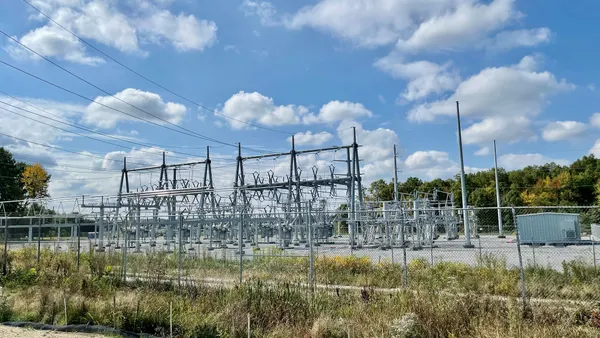Dive Brief:
- The Maryland Public Service Commission issued an order Aug. 9 to adopt a multi-year alternative ratemaking process it says will make rates more predictable, shorten utility cost recovery time and reduce the administrative burden of annual rate filings.
- The new process would allow utilities to file new rates every three years, though they would still have the option to file annual traditional rate cases using historic test year data.
- The commission directed its Public Utility Law Division to convene a working group to develop an implementation report that will be due to regulators Dec. 20. The PSC said it hopes to issue a ruling on the next steps by Jan. 30, 2020.
Dive Insight:
Maryland regulators say the alternative ratemaking structure would align its processes with the direction other states are headed, while limiting the number and frequency of utility rate cases and allowing customers a greater degree of bill certainty.
PSC Chairman Jason Stanek called the decsion a "historic step towards advancing ratemaking."
"While alternative forms of regulation are not new in Maryland, we recognize that changes are rapidly occurring in the utility sector and more can be done to facilitate cost recovery, improve utility planning, and meet the changing needs and expectations of customers," Stanek said in a statement.
Multi-year rate plans can offer a range of benefits, regulators said, but the commission order notes that a primary advantage is reducing the regulatory lag that comes with using a historical approach. The new methodology may also provide incentives to utilities for some performance-based goals, the PSC said.
"Multi-year rate plans would combine the stability of traditional ratemaking while permitting adjustments that better reflect the changing energy market," the commission wrote in its order
Maryland law already gives the PSC the authority to adopt alternative rate regulation. The commission noted that it has already approved decoupling mechanisms to allow Baltimore Gas & Electric, Pepco and Delmarva Power & Light (the joint utilities owned by Exelon) to offer energy efficiency programs.
While the traditional ratemaking method, based on a historic test year, has worked for decades in Maryland, the PSC said it is aware of "perceived drawbacks such as a failure to equitably distribute risk, limited capabilities to monitor costs, limited ability to achieve policy outcomes and potential restrictions on utility innovation, and arguably regulatory lag," which can hurt a utility's ability to earn its authorized rate of return.
The joint utilities, owned by Exelon, had advocated for formula rate models and alternative forms of regulation that would utilize future test years for ratemaking. In its decision, the PSC said that "a formula rate does not address the central issue of regulatory lag."
"The commission also is concerned that moving forward on formula rates would be complex and likely to require additional and lengthy analysis and proceedings to implement," the order said. "Other shortcomings of formula rate mechanisms ... include the tendency to shift financial risks toward customers, a concern that automatic adjustments may curtail the thorough review of utility costs, and reduced incentives for utilities to control costs."














